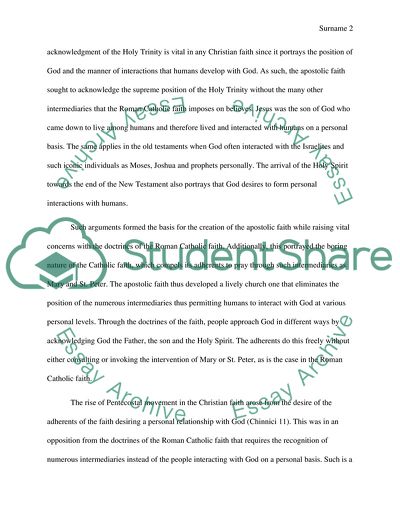Cite this document
(Difference between Roman Catholic and Apostolic Faith Essay Example | Topics and Well Written Essays - 2500 words, n.d.)
Difference between Roman Catholic and Apostolic Faith Essay Example | Topics and Well Written Essays - 2500 words. https://studentshare.org/religion-and-theology/1840893-roman-catholic-faith-verse-apostolic-faith
Difference between Roman Catholic and Apostolic Faith Essay Example | Topics and Well Written Essays - 2500 words. https://studentshare.org/religion-and-theology/1840893-roman-catholic-faith-verse-apostolic-faith
(Difference Between Roman Catholic and Apostolic Faith Essay Example | Topics and Well Written Essays - 2500 Words)
Difference Between Roman Catholic and Apostolic Faith Essay Example | Topics and Well Written Essays - 2500 Words. https://studentshare.org/religion-and-theology/1840893-roman-catholic-faith-verse-apostolic-faith.
Difference Between Roman Catholic and Apostolic Faith Essay Example | Topics and Well Written Essays - 2500 Words. https://studentshare.org/religion-and-theology/1840893-roman-catholic-faith-verse-apostolic-faith.
“Difference Between Roman Catholic and Apostolic Faith Essay Example | Topics and Well Written Essays - 2500 Words”. https://studentshare.org/religion-and-theology/1840893-roman-catholic-faith-verse-apostolic-faith.


